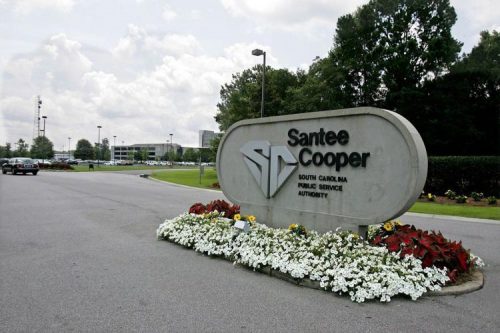Legislators to decide Santee Cooper’s fate amid legal setbacks
On Thursday, The Post & Courier reported that Justice Jean Toal denied Santee Cooper’s request to stop the case against them from remaining a class-action lawsuit. This was a severe blow to Santee Cooper’s court fight over whether or not their customers should shoulder the burden of billions in debt from their failed nuclear project. Justice Toal also rejected a Santee Cooper request that would lessen their potential financial penalties under the case. The next trial date was set for April 20th, as requested by the ratepayer plaintiffs suing Santee Cooper.
In our most recent report, After the V.C. Summer Iceberg – Which lifeboat is safe?, we looked ahead to the potential consequences of this litigation and posited 5 potential outcomes for Santee Cooper. In doing so, we had a premonition that there is also a sixth way – a potential outcome where the legal issues and the political/administrative issues converge.
It is important to note that the political and administrative process is taking place concurrently with the legal process. The Department of Administration’s report detailing the bids for Santee Cooper’s sale is expected very soon, and simultaneous with that process is the legal case that is, so far, not moving in Santee Cooper’s direction.
In our report we said:
If at trial, Dominion and Santee Cooper are both more and more likely to be found as bad actors in their conduct and coverup in regard to the V.C. Summer debacle, and if a bondholder haircut and possible damage to the state’s credit reputation are appearing likely, the door could be open wide for a sale. The acquiring company could offer a “full solution” that would remove the cloud, resolve all liability and settle with plaintiffs as a condition of the sale. (Not so different from the outcome of the Dominion acquisition of SCE&G nearly simultaneous with the settlement of Lightsey v. SCE&G et al. and the PSC approval of lowered SCE&G rates and rebates to compensate ratepayers for some of the V.C. Summer loss.)
If the General Assembly decides to allow Santee Cooper to continue operating as a state-owned entity either according to its own plan or under management of another utility, the majority of the potential outcomes mean that Santee Cooper and co-op customers would continue to foot the bill for the unfinished V.C. Summer nuclear project and that the South Carolina legislature and government agencies will continue to be embroiled with V.C. Summer fallout for many years to come.
When the Public Service Authority Evaluation and Recommendation Committee hired international consulting firm ICF to test the market, ICF showed that interest in purchasing Santee Cooper is there, even with the demand that nuclear debt be defeased and written-down. Our “sixth way,” a free-enterprise solution encapsulating the legal and the political, could be just what the doctor ordered for an ailing Santee Cooper.
In order for the “sixth way” to be an option, the offer from the DOA-recommended bidder must be substantial enough to offer a “full solution.” We have no access to the offers, but are hoping for a game-changing bid for the ratepayers’ and taxpayers’ sake.
Photo: The Berkeley Independent







